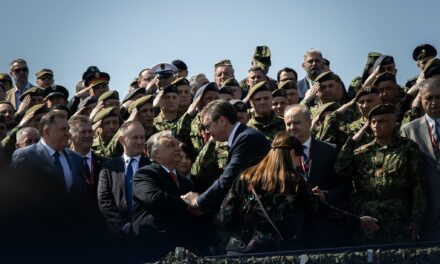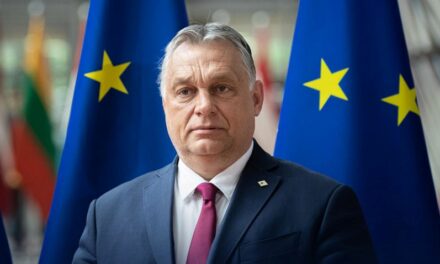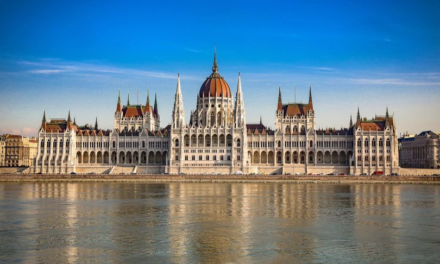According to the prime minister's political director, the Balkan countries and Hungary are dependent on each other, and the regional and global relations of our countries should be increased, not abolished. Balázs Orbán spoke at the Balkan Summit of the Institute of Foreign Affairs and Trade.
"How is Hungary connected? What does this relationship mean for the countries of the Balkans? What is their relationship with Hungary and the EU - and what is the system of relationships the other way around?" Balázs Orbán asked the question at the beginning of his presentation. According to him, we can better understand our special relationship system if we look at how the rest of the world sees us.
He shared a story according to which it is not necessary to analyze strategies if we understand the deep, historical relations between the Balkan countries and Hungary. In 1973, a popular cookbook was published in Germany and Austria about the region, which presented the cuisine of the Balkan nations and the Hungarians as one unit.
However, according to Balázs Orbán, this perception is not entirely accurate. The Balkans itself consists of many countries, which are significantly different from each other - just as Hungary is different from them.
Orbán emphasized: we must connect with each other, despite our differences.
Connectivity is a huge opportunity for both the Balkans and Hungary.
The prime minister's political director then spoke to the audience about Hungary. The post-Cold War period brought globalization based on a neoliberal model. They thought they found the best model by reducing regulations, strengthening the free market, and spreading Western liberal democracy - which, according to the ideas, would have led to the end of history and the East would have become like the West.
In the meantime, however, the neoliberal order brought exactly the opposite of what it promised. Eastern challengers understood and learned the model and then began to play by their own rules, showing that the Western neoliberal idea was not the only valid one in the world. In the two thousand years, economic, migration and political crises followed one after the other, which became symptoms of the changing world order. According to Balázs Orbán, the war in Ukraine shows the current state of the reorganization taking place in the world, the divergence. For the most part, the Western countries could only line up the Western country against Russia.
Orbán explained: like it or not, the unipolar world order no longer exists.The political and geopolitical situation is changing. The global system began to fragment. The West wants to maintain its previous power, building an exclusive sphere of influence. According to Balázs Orbán, however, this is dangerous for Hungary and Central Europe, as we would be pushed to the periphery, and the states of the periphery would have to adapt to distant centers. With this, our region would lose its previous perspectives, it would become impossible to catch up with the group of highly developed countries. During the current sanctions period, the relations between East and West began to break down, blocs of countries are starting to form again, which is bad for Hungarian interests.
According to Balázs Orbán, the question is how to avoid this. Correct answers must be found, because otherwise Hungary cannot avoid the pitfalls.
According to Balázs Orbán, the correct answer is that our communication system must be expanded,
For more infrastructural connections, more investments, more knowledge transfer and public diplomacy. Orbán believes that the logic of blocs must be overcome, which can be achieved by building relationships.not less, but more connections are needed.
All of this also applies to the international political arena: Orbán emphasized that Hungary wants to participate in all possible international cooperation forums. Of course, we are part of the EU, which is the most important relationship network for Hungary. Despite all the current political conflicts, this is still the greatest value. We are also members of NATO, the world's largest and strongest defense alliance, which connects the member states.
But regardless of this, we also build other relationships and alliances: for example, the group of Visegrad countries, or the Bucharest Nine group, with the member states of NATO's eastern wing, or the Three Seas Initiative in our region. Balázs Orbán also listed the Turkish Council among the important regional initiatives, as well as the China-focused New Silk Road initiative -
all of these are part of the Hungarian connection and connectivity strategy.
Balázs Orbán emphasized: since 2010, Hungary has been operating on the basis of a new economic model, in which the state plays an important role, and in which international relations are also very important.
However, in addition to economic relations, Hungary also wants to maintain the traditional networks of cultural relations that make up our civilization. At the same time, national sovereignty must be respected and families must be protected and supported. "We cannot forget who we are and where we came from," emphasized Balázs Orbán.
According to Orbán, the main message is clear: Hungary opposes blocking, separation, and the liquidation of existing contact networks. Instead, we need more cooperation, building as many relationships as possible.That is why we also need relations with the Balkans, connecting the Balkans with the European Union. Balázs Orbán emphasized:
the Balkan countries and Hungary depend on each other,
regional relations are of critical importance, to which special attention must be paid. Hungary's interest is a strong Balkans, and the Balkans also needs Hungary as a close relationship, to represent common interests.
Featured image: Origo/Sándor Csudai












